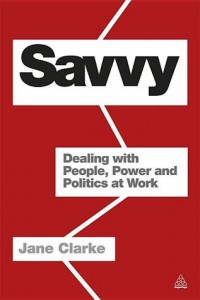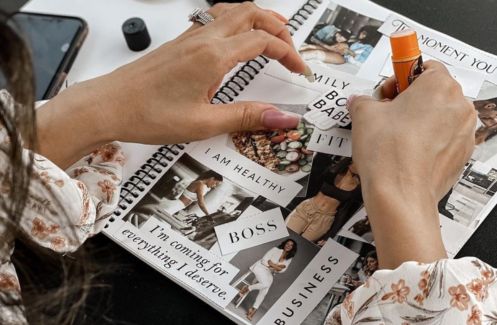
Kicking off an Australian tour, the spiritual leader was in Sydney responding to Australia’s current gender war in which now former prime minister Julia Gillard accused the opposition of misogyny after being mocked at a fundraising banquet that referred to her ‘small breasts, big thighs and big red box.’
Sexist politics aside, the man whom many consider the world’s wisest being may have a point.
A research study by Dr Kack Zenger and Dr Joseph Folkman looking at over 7000 leaders in the most successful and progressive organisations in the world came up with some food for thought.
Leaders were rated in 16 competencies and women outscored men in all but one area – the ability to develop a strategy. What was surprising was that the two areas where women most highly outscored the men were traits thought of as traditionally male – taking initiative and driving results.
The Dalai Lama said women will make better leaders because ‘peace is implicit in women. You put boys together they make war, you put women together they make peace. Women are the leaders of the future.’
What’s more, six of the top 10 spots in today’s Forbes Celebrity 100 list are claimed by women including Oprah Winfrey and Lady Gaga.
But despite this – and His Holiness’s assertions – right now women hold only four per cent of the CEO roles in Fortune 500 companies.
So – how can the rest of us fulfil our potential and lead more?

Have a clear personal vision Women are more likely to worry about what they’re not good at, rather than focus on playing to strengths. Research clearly indicates that a woman generally won’t ask for promotion until she has been operating at the higher level for some time, whereas men get promoted and they’re already eyeing their next career move. ‘It is vitally important for women to understand and value their strengths, consider what they want to be known for and build their personal leadership brand on this basis. For instance, many studies indicate that women find it easier to build relationships and generally possess stronger inter-personal skills. These are critical leadership characteristics – use them. Vision also applies to the way in which a woman leads the team. She needs to have a strong sense of where she wants to take the team, to communicate that compellingly and then mobilise the team to achieve the goals.
Build up self-belief Research indicates women are less confident than men. They are also more likely to be what the psychologists call ‘externally referenced’ – in other words, to place more importance on what other people think, than what they themselves feel. Women can therefore, be knocked more easily by criticism. In order to be a great leader, it is vital to possess strong self-esteem and a sense of self-efficacy. To develop this, women need to find ways of building their self-confidence. Positive self-talk, celebrating successes – or even, as Facebook’s Sheryl Sandberg says, ‘fake it till you make it’ – are all helpful techniques.
Develop resilience John Nicholson and I also published the book Resilience (Crimson), for which we did extensive research into the difference between women’s and men’s resilience levels. Our current database, which is over 12,000 people globally, indicates that women rate themselves as lower on all elements of resilience – despite being more resilient than men on on their markers for resilience (For example, having longer life expectancies). But the greatest discrepancy is in the element which relates to managing stress and anxiety. One of the reasons for this is that women are more anxious and are likely to beat themselves up when something goes wrong. Often, despite putting the problem right, a woman continues to worry about it. Leadership in the kind of climate we’re operating in requires high levels of resilience and so it is vital for women to minimise their anxiety and manage their stress levels. Easier said than done, maybe, but it comes down to letting things go, getting a sense of perspective, resolving conflicts where needed and just moving on.
Enhance political savvy This is what my book Savvy is all about. Women feel far more uncomfortable ‘playing the politics’ than men do. And a major part of this is networking. A high percentage of women consider working their network to be somehow “not right” or even “morally wrong”. So getting comfortable with this essential part of working life is important. The shape of women’s networks is also different: a McKinsey study showed that women’s networks are narrower, but deeper, than men’s – but that the shape of a man’s network is more conducive to career development and achieving broader business success. Additionally, women don’t tend to like “networking without purpose”. So women need to broaden their networks, but they should also think about ensuring there’s a real reason for getting in touch – no matter how laterally they need to think to identify that purpose. Reciprocity also helps women – you scratch my back and I’ll scratch yours. Identifying how they could help the other person will usually make networking feel like a more equal encounter for a woman.
Achieve work / life integration Work / life balance is becoming less and less accessible to people as the environment gets tougher, and demands greater – particularly when you are in a senior position. So you need to aim instead for work / life integration. Accept that the odd personal call during work hours and the odd work call during holidays is just what is needed now. Turning on your laptop or getting on the BlackBerry at 10pm may be the only way of keeping on top of emails. And it’s important to go to sports day! But importantly, don’t feel guilty about it – ask people to judge you on what you deliver, not the number of hours you sit at your desk for.
Try these questionaires to find out more about yourself and your work style
Office politics survey www.officepoliticssurvey.com
Resilience quotient www.testyourrq.com

Like this article? Sign up to our newsletter to get more articles like this delivered straight to your inbox.













































































































